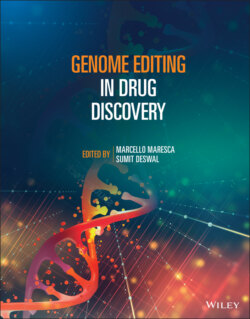Читать книгу Genome Editing in Drug Discovery - Группа авторов - Страница 64
4.4.1 Critical Steps for Outsourcing
ОглавлениеA number of companies and academic institutions offer genome editing services. Providers can be found through websites including Science Exchange (https://www.scienceexchange.com) and Biocompare (https://www.biocompare.com) and we provide a non‐exhaustive list in Table 4.2. It is important to base your choice on the reputation and track record of the company, otherwise you run the risk of contracting a CRO that will use your project for its own capability development (Pichler and Turner 2007). If possible, it is advisable to visit the CRO facility to inspect their laboratory set‐up, view the equipment used, and discuss case studies that the company has completed. Also, you will need to perform due diligence checks. For example, discuss if the CRO holds foundational CRISPR licenses and understand their workflows with regard to data integrity (i.e. how they record and track their data). The next step is to set up a Confidential Disclosure Agreement (CDA) so that you are able to freely exchange information about the project you want to conduct and codevelop a detailed experimental plan. As in the case of sourcing reagents, when discussing genetic screens or cell line generation experiments with a CRO, it is important to focus on the formula Model × Assay × Perturbation (M × A × P), as clearly defining all three will ensure success. Following, discussions on the science, economics, and timelines need to be considered. Sometimes, providers may offer optimistic timelines that work if everything goes well according to plan and no repeats need to be made. However, this may not always be the case, so it is important to discuss this and ensure that timelines are realistic. If possible, reach out to other groups that have used the same provider and learn how long the execution of their project took. Alongside timeline discussions, you will need to build milestone checkpoints as part of the service agreement. The importance of milestone checkpoints is to provide you (the client) with the opportunity to review the data at appropriate progress checks and terminate the programme if it is unsatisfactory. Also, one should mutually agree on the format and frequency of updates on the project and ensure that the CRO is willing to provide not only analyzed, but also raw data, so that you can independently review and assess the quality of the results. If material transfer is needed (i.e. a host cell line), a material transfer agreement (MTA) should be part of the service contract. Figure 4.1 outlines key steps involved in working with CRO on CRISPR genome editing or screen projects.
